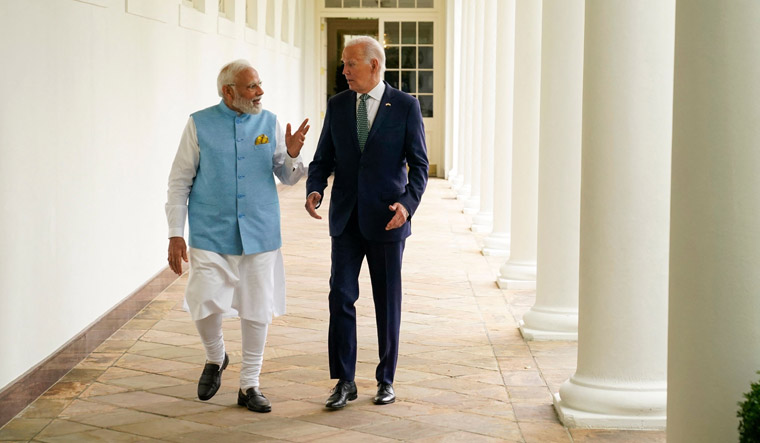USCIRF, an US Religion Watchdog has “implored” the Joe Biden administration to mark India as a “country of particular concern” over its alleged killing of minorities abroad.
The “recent efforts by the Indian Government, journalists, and lawyers abroad pose a serious threat to religious freedom”, said the US Commission on International Religious Freedom (USCIRF), an independent federal government commission.
The recommendations against India have been raised each year since 2020 by officials at the USCIRF, raking the designation under the 1998 US Religious Freedom Act. Under the act, the country is accorded a range of policy responses, such as sanctions and waivers. However, these restrictions are not automatic.
USCIRF said it had recommended each year since 2020 that the State Department label India a country of particular concern, a designation under the 1998 U.S. Religious Freedom Act. The act allows a range of policy responses, including sanctions or waivers, but they are not automatic.
Mr Curry said India’s extension of domestic repression to targeting religious minorities living abroad “is especially dangerous and cannot be ignored”.
Officials at the Indian embassy in Washington have not immediately issued a response to the commission’s statement and the Narendra Modi administration has repeatedly denied any responsibility for discrimination against religious minorities in the Hindu-majority nation.
)
US officials became aware of the alleged plot to kill Mr Pannun last spring. The unnamed government official was mentioned in an indictment, unsealed in Manhattan federal court, that charged Indian national Nikhil Gupta, 52, with murder-for-hire and conspiracy to commit murder-for-hire.
More about the USA Religion Watchdog; USCIRF
The United States Commission on International Religious Freedom (USCIRF) is an independent, bipartisan U.S. federal government agency created by the 1998 International Religious Freedom Act (IRFA), as amended.
USCIRF monitors the universal right to freedom of religion or belief (FoRB) abroad; makes policy recommendations to the President, Secretary of State, and Congress; and tracks the implementation of these recommendations. USCIRF’s nine Commissioners are appointed by either the President or Congressional leaders of each political party, supported by a non-partisan professional staff.

While USCIRF is independent from the State Department, the Ambassador-at-Large for International Religious Freedom is a non-voting member. USCIRF’s analysis is based on international standards. Article 18 of the Universal Declaration of Human Rights affirms that:
“Everyone has the right to freedom of thought, conscience and religion; this right includes freedom to change his religion or belief, and freedom, either alone or in community with others and in public or private, to manifest his religion or belief in teaching, practice, worship and observance.”
Are the India-US relations at stake with this USCIRF report?
Reports from such institutions leave a mark; whether be it the nations or the people. Previously USA has been very co-operative with India whether it was the Pannun Murder allegations or the bilateral talks. India and USA have managed to emerge as probably the most powerful alliance in World Politics considering India’s tremendous growth.
The Watchdog, USCIRF claimed India is weak and biased religion-wise and made some awful comments on the country’s religious structure. However, neither nations’ government have reacted towards this allegation but it gives the Opposition in India an agenda to fight for in the upcoming 2024 General Elections.

People close to the organisation and the POTUS feel this designation or rather call to designation for ‘Country of Particular Concern’ would not age well and are anticipated to leave a dent on the India-USA relations. The ongoing assault probe of Pannun would have already created sour relations between the two let alone the impact of such allegations.
India would expect USA’s full support in such circumstances. Given the strategic importance between the two countries the big for such destinations might not augur well if USA does decide to support it. While India counts on USA to counter this; will USA support its ‘friend’ or will it support the USCIRF?












